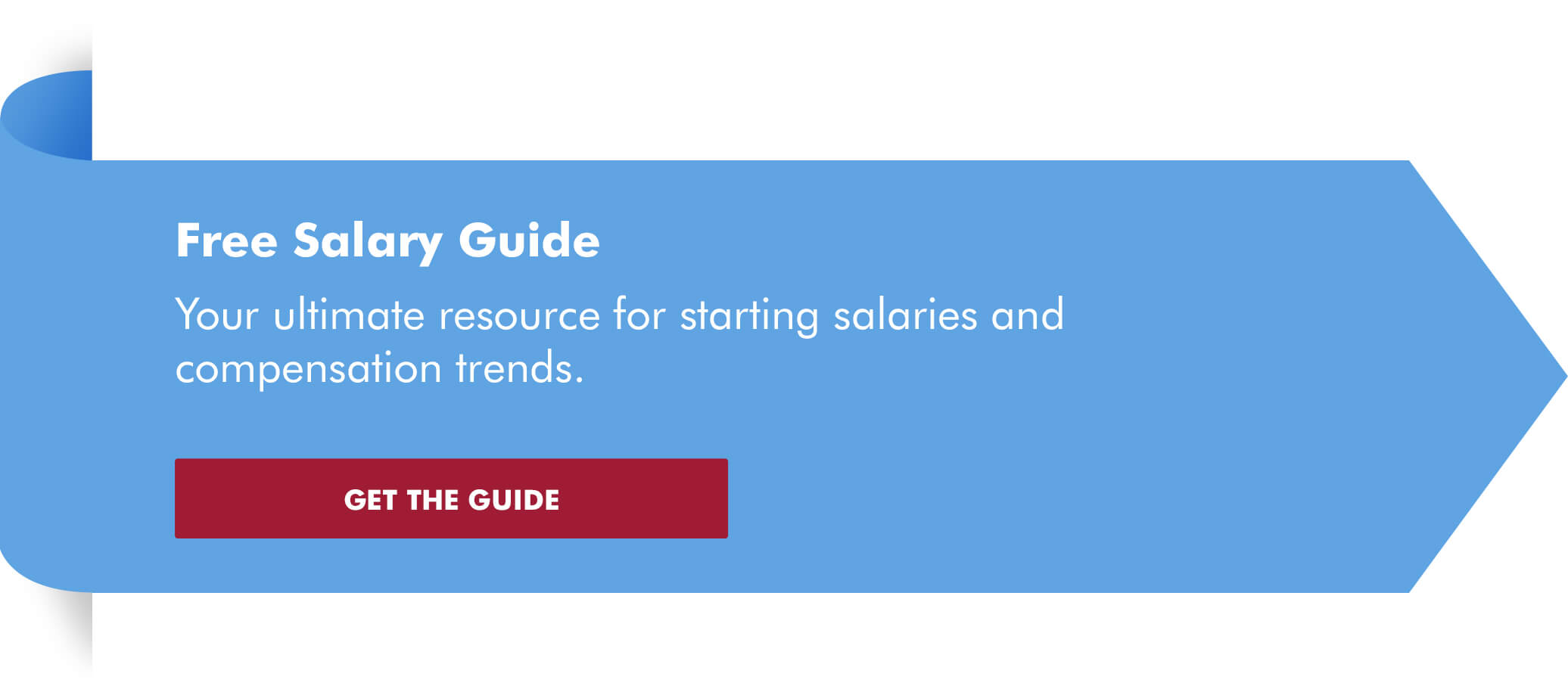As businesses race to address an array of consumer-focused compliance requirements, from anti-money laundering laws to corporate accounting mandates, the demand for compliance officers continues to grow. Across industries, from retail and real estate to healthcare and government, financial examiners remain in short supply.
Competition is intense, especially for candidates well-versed in accounting laws and regulations and those adept at identifying and managing regulatory risk and collaborating across departments.
The requirements companies must juggle to keep current with global and domestic regulatory standards — amid the rise of cryptocurrency, fraud prevention, online retail, data protection and privacy — show no signs of abating. The good news for compliance officers is this: Jobs will be plentiful for the foreseeable future, and the compliance officer salary will remain favorable among roles in the financial services field.
Job security for top compliance professionals
The Bureau of Labor Statistics forecasts that employment of financial examiners is projected to grow 18% by 2030, much faster than the average for all occupations. That amounts to about 6,900 openings projected per year on average, due to compliance officers moving to other firms or retiring.
Meeting regulatory compliance mandates is a top pressure point for accounting and finance organizations. According to the latest Robert Half Salary Guide, regulatory changes and complexity continue to drive demand for compliance professionals.
Looking for a compliance officer position? Search for available job opportunities.
Skills and qualifications for success
For these roles, employers are seeking:
- Organized, inquisitive, innovative problem solvers with the ability to perceive, understand and interpret facts quickly and precisely
- Professionals with solid time management skills, the ability to multitask and see the big picture
- Diplomacy as a necessary soft skill (Expense examiners must work with diverse stakeholders as they deliver critical assessments for improving a company’s financial health, identify leaders to facilitate the end goal and help usher the team forward. A compliance officer must explain in layman’s terms the nature of a problem, offer a correction plan, invite stakeholders to provide solutions and then monitor for remediation.)
- Professionals who stay abreast of technology advancements, and who offer a work history of preventing, detecting and remediating compliance violations
- Deep understanding of the company’s culture
Industry experience can be a key attribute as well, particularly in highly regulated areas such as financial services. While the details of specific mandates can be learned, companies can benefit from hiring compliance officers who are knowledgeable about the broader regulatory landscape for their specific sector. A college degree in finance and accounting is preferred although many professionals in compliance have transitioned from legal, real estate, banking, private equity or startup career backgrounds.
Many employers also value a master’s degree in business administration or an in-demand certification such as the CPA credential. Other beneficial certifications include the CCEP (Certified Compliance & Ethics Professional) and IACCP (Investment Adviser Certified Compliance Professional).
Compliance officer salary projections
Successful compliance officers are highly valued by their companies. They are often compensated generously with paths to advancement and attractive salary and benefit packages.
Robert Half’s latest Salary Guide provides midpoint salary projections for corporate compliance officers and chief compliance officers based on national averages.
Find projected salaries, hiring trends and insights in the Salary Guide From Robert Half.
What are the typical duties and responsibilities?
Compliance officers are responsible for ensuring their organization adheres to government regulations — domestically as well as globally, if applicable — and avoids missteps that could result in hefty fines, legal ramifications and reputation damage. They also need to make sure that employees are following internal compliance policies.
Compliance officers assist teams within their company in developing, implementing, maintaining and supporting compliance programs. They also do the following:
- Coordinate, review and update existing accounting policies and procedures
- Manage the ongoing review of materials and communication tools to ensure departments meet compliance requirements
- Adhere to regulatory reporting guidelines and filing deadlines
- Conduct compliance audits and interpret these reports for various departments
- Facilitate remediations of audit findings by training staff to make course corrections and prevent future violations
Along with assessing financial risks and creating a game plan to handle those potential issues, compliance officers provide regular reports to their leadership and rank-and file teams on the effectiveness of a business’s compliance measures. They also advise business leadership on any actions or changes that should be implemented. In many organizations, senior management expects the compliance officer to collaborate as a partner and demonstrate how compliance is a business priority and can help drive strategy.








